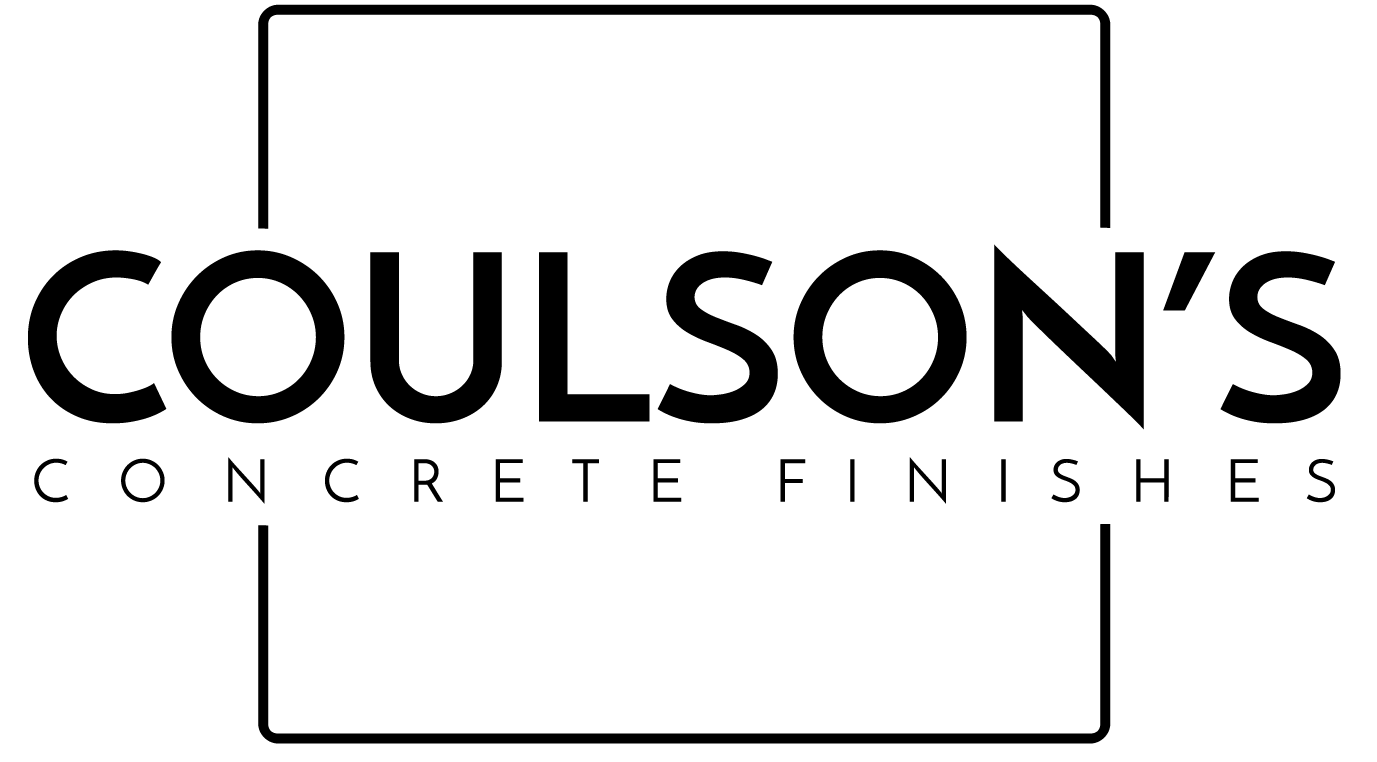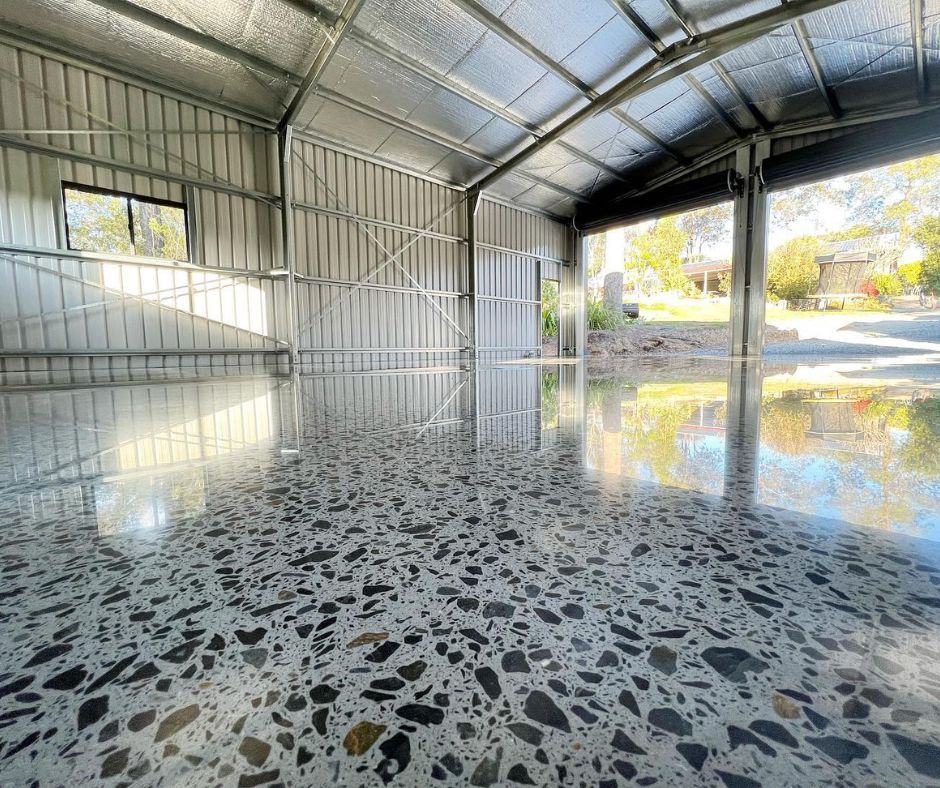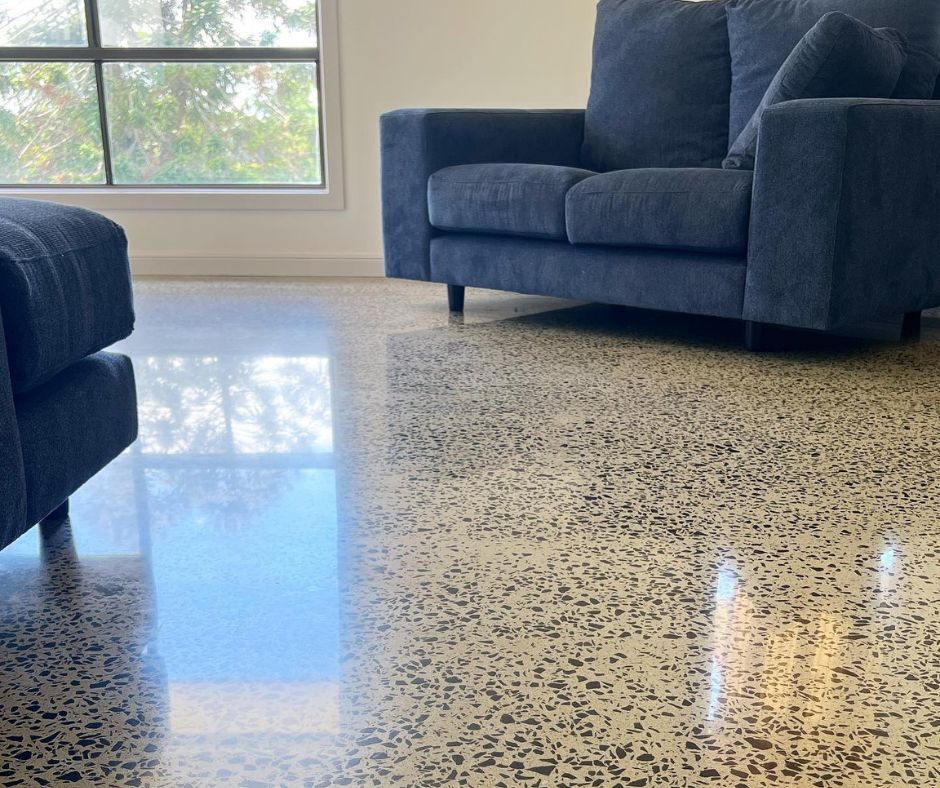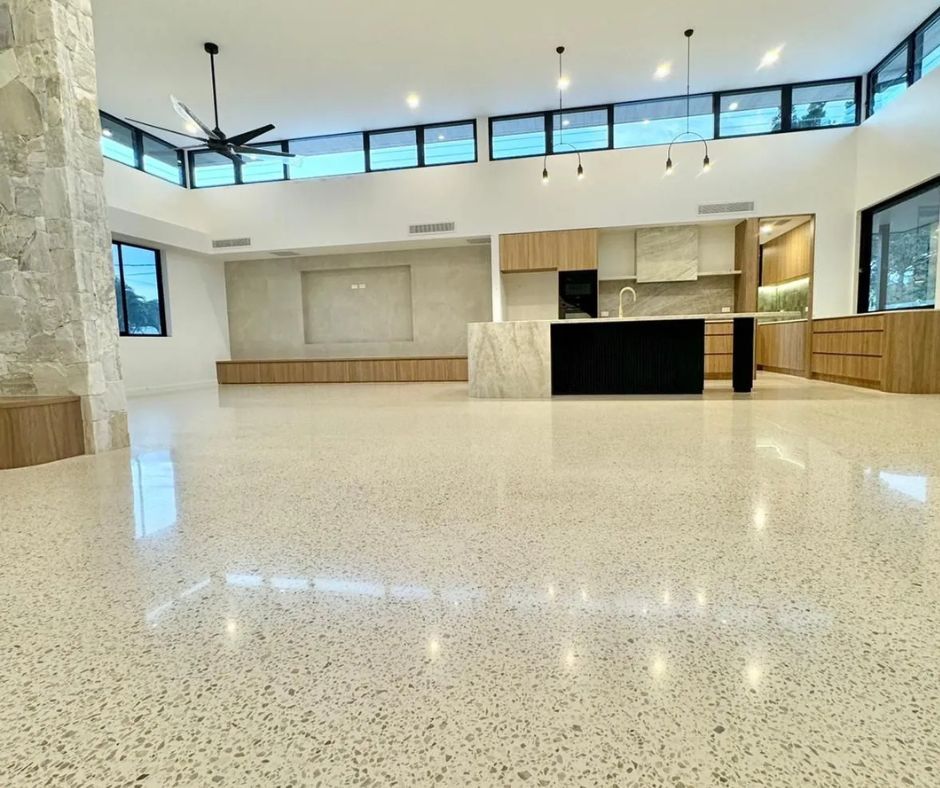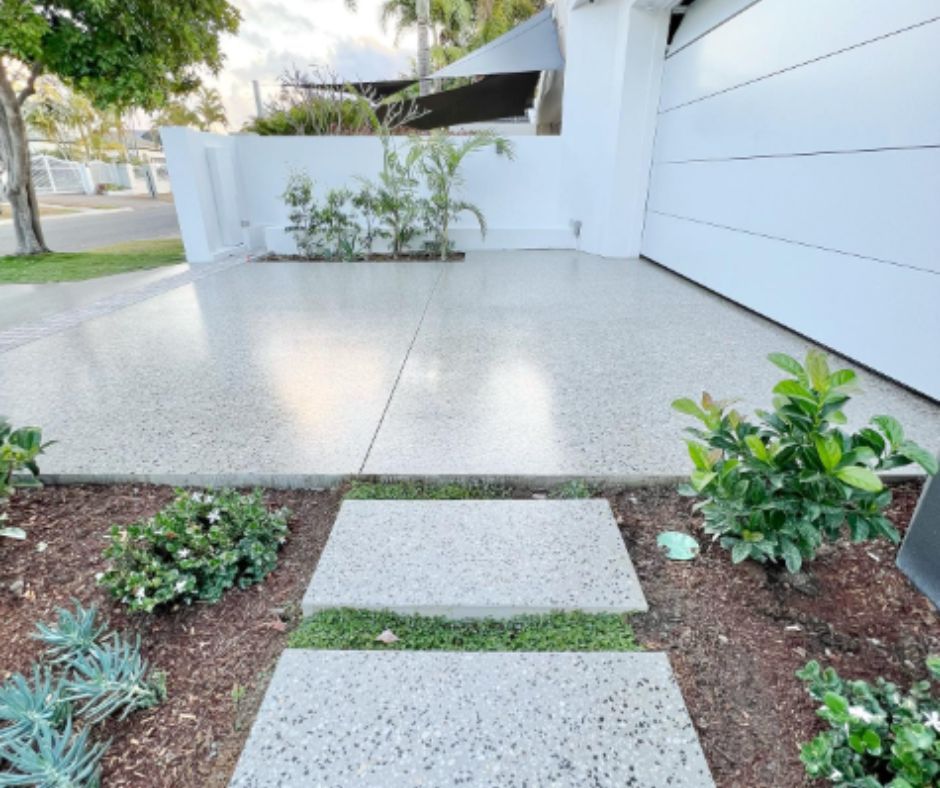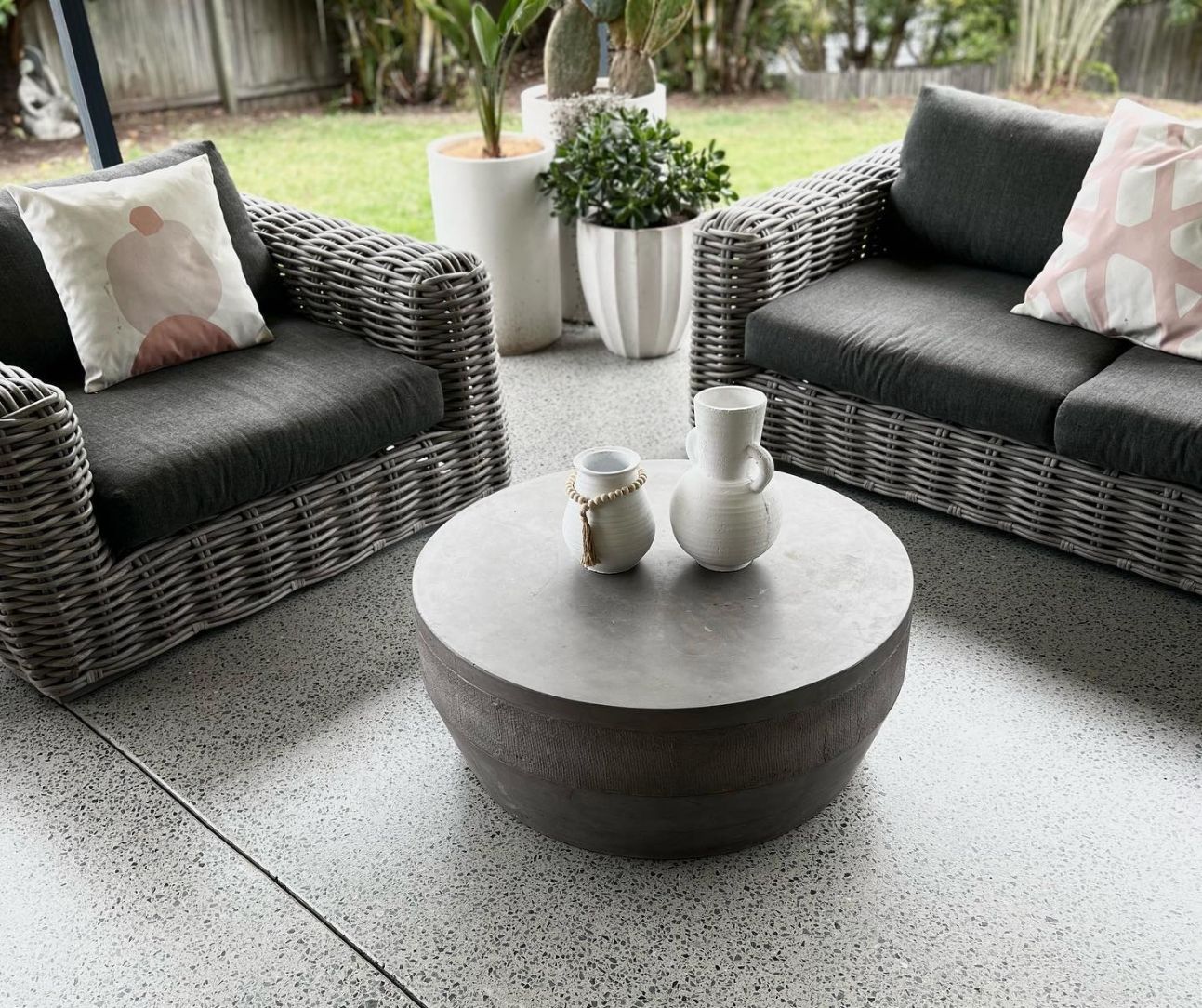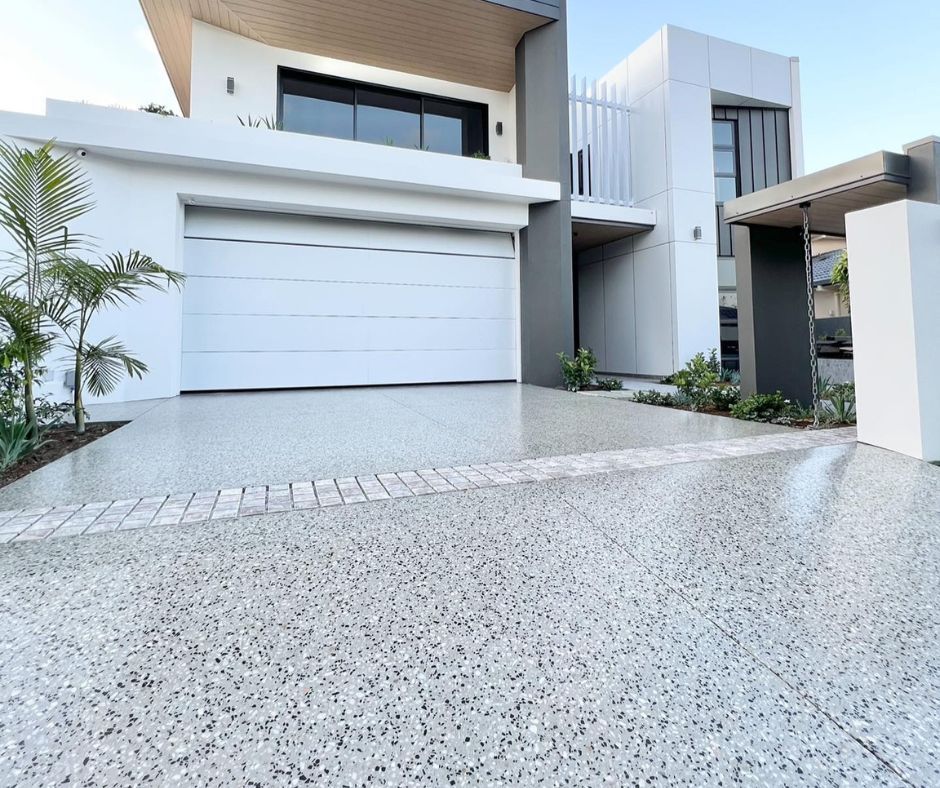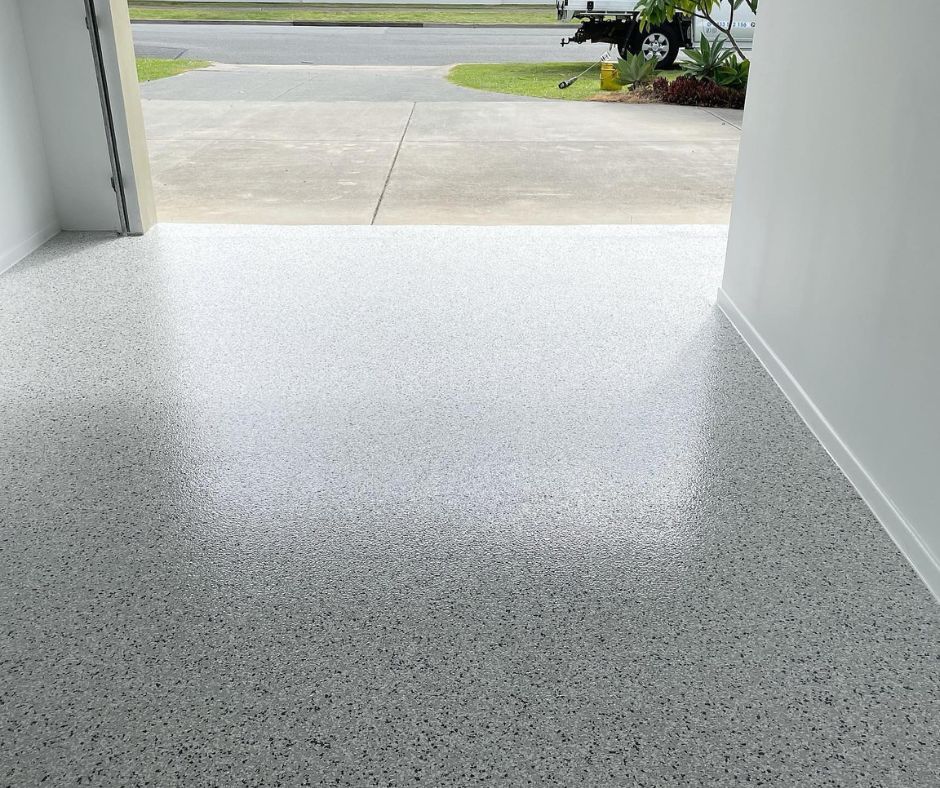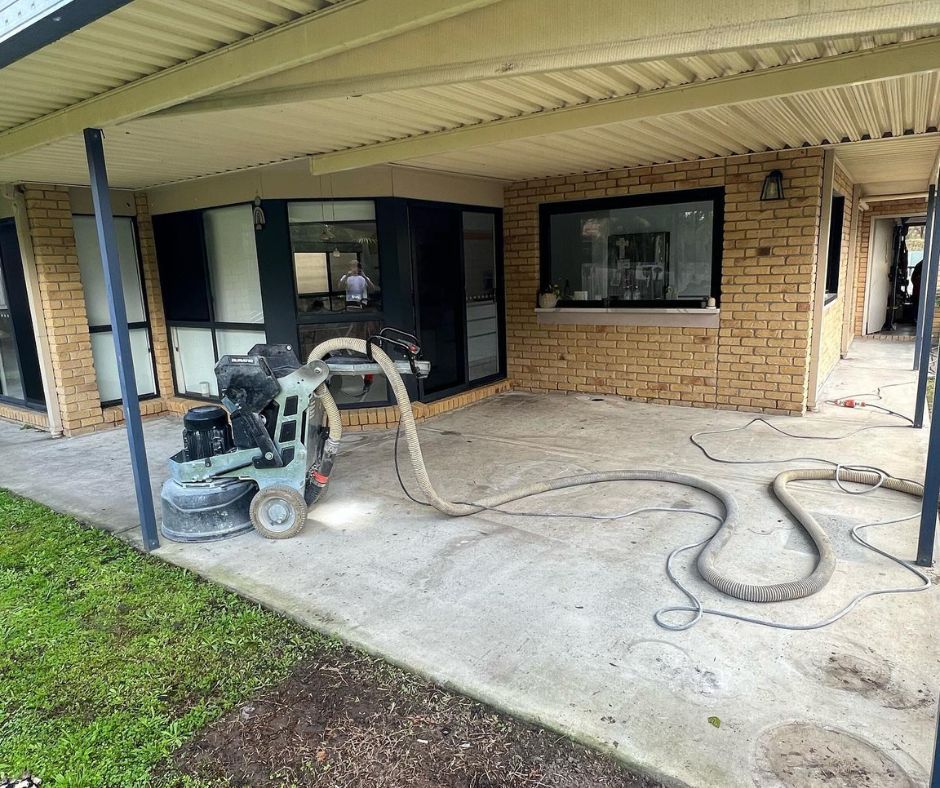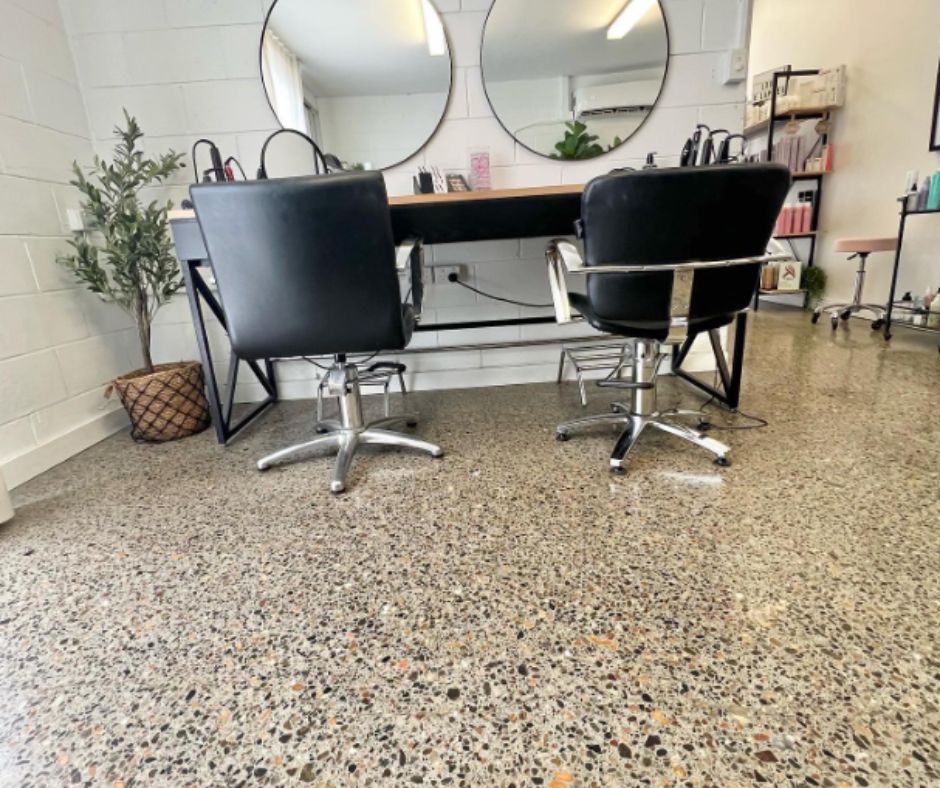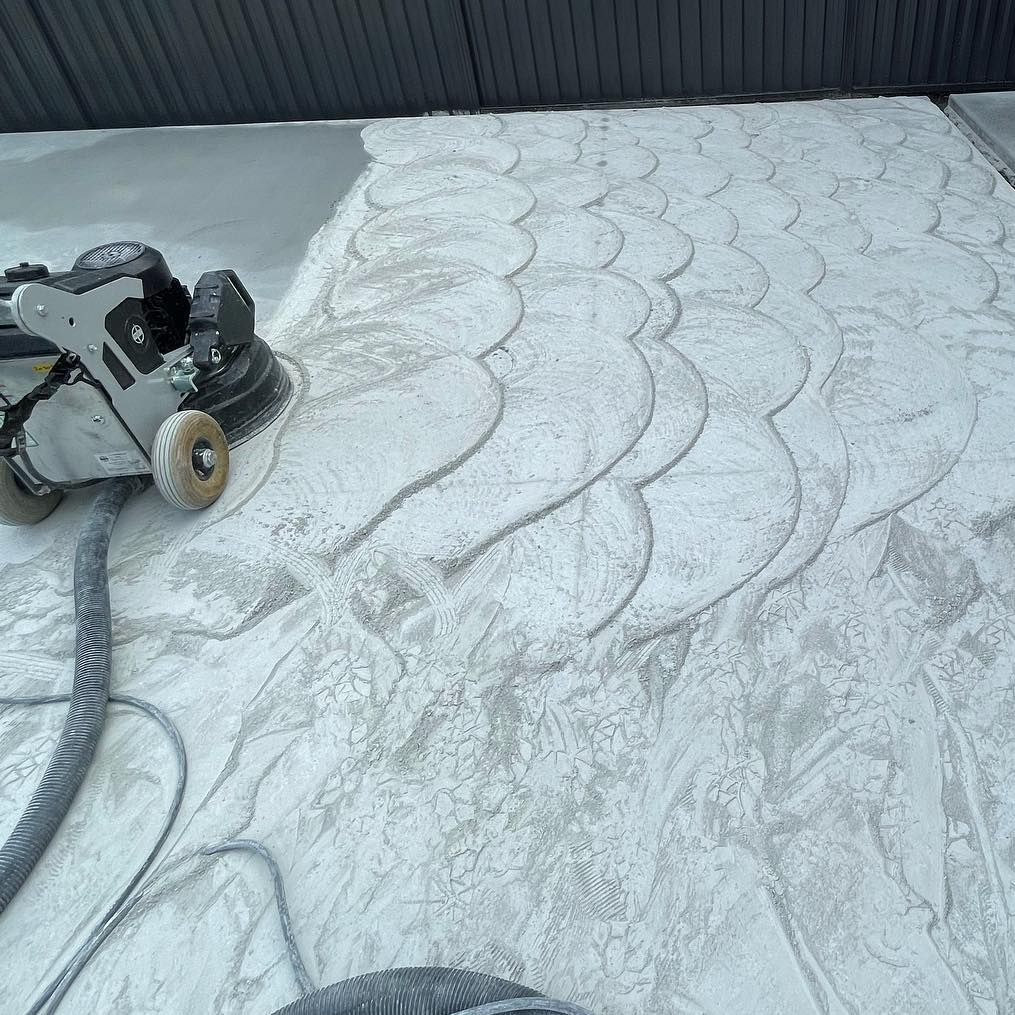Epoxy Flooring Pros and Cons: Is It Right for Your Property?
Thinking of upgrading your floors? Epoxy flooring is everywhere, but is it the right choice for your space?
The subtropical climate of the Gold Coast means year-round humidity and intense summer UV, both of which affect how epoxy performs and what system you should specify for homes and businesses. That’s why it’s worth weighing the fit for your property and getting advice from a qualified installer before you decide.
Let’s dig into what makes epoxy flooring shine… and when you should think twice. Along the way, we’ll share local insight from a team with extensive experience prepping and
installing epoxy flooring on the Gold Coast. You’ll also get a practical look at epoxy flooring pros and cons for homes and businesses on the Gold Coast.
Why Epoxy Flooring is Gaining Popularity in Gold Coast Homes & Businesses
Epoxy flooring has become a go-to for high-traffic, high-impact spaces because it delivers a seamless, hard-wearing surface that’s easy to clean and customise. On the Gold Coast, you’ll most often see it in residential garages and home gyms, commercial kitchens and showrooms and industrial workshops where forklift traffic, oils and chemicals are part of everyday operations.
Beyond practicality, epoxy systems offer a polished, professional look that enhances a space instantly. These benefits explain the popularity of this flooring option but choosing wisely means understanding both the upsides and the epoxy floor pros and cons that come with each system.
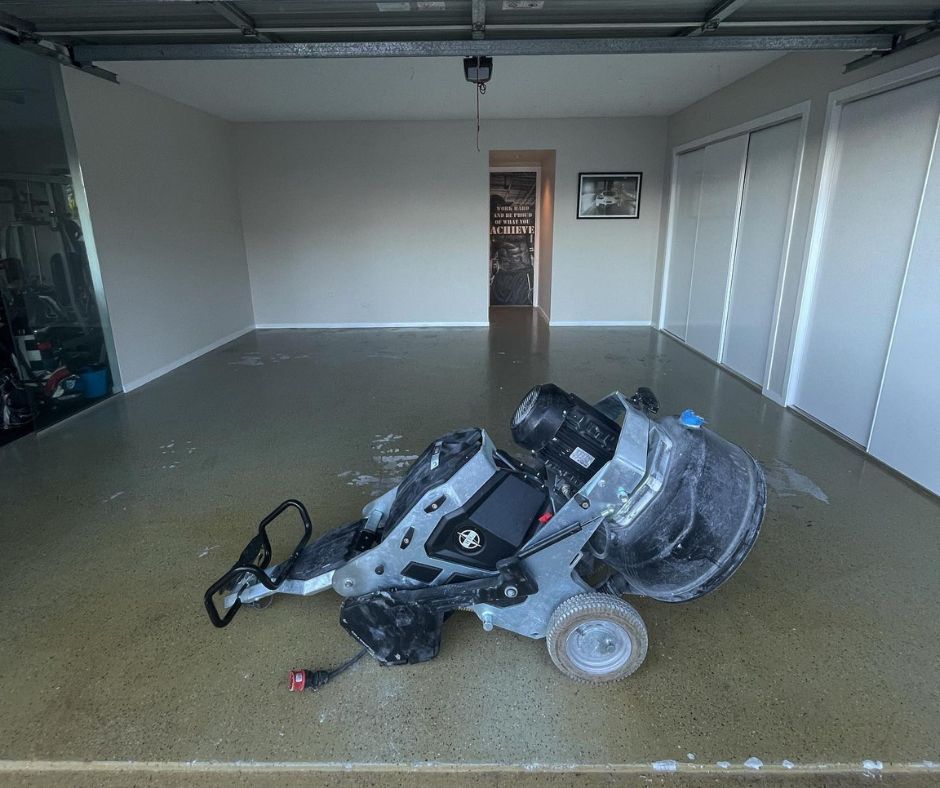
Epoxy Flooring Pros and Cons
Pros of Epoxy Floors
Here’s a quick snapshot of the main advantages so you can see where this finish really shines.
Durability & Long Lifespan
Properly prepped and installed, epoxy stands up to daily wear, rolling loads and sudden impact of a dropped tool.
Seamless, Low-maintenance Surface
With no joints to trap dirt, cleaning is simple. A quick sweep and occasional mop keeps garages, utility rooms and showrooms looking sharp.
Chemical & Stain Resistance
From car fluids to household cleaners, quality epoxy flooring resists common spills and stains.
Aesthetic Flexibility/Design Options
Choose solid colours, flake blends, quartz or metallics. Match corporate palettes for commercial spaces or pick something subtle for home. You can zone work areas or walkways with colour bands.
Easy to Clean
The non-porous finish helps prevent absorption of grime, making it easy to clean and a practical choice for prep areas, laundries and pet zones.
Improved Light Reflectivity
Lighter or glossy finishes bounce ambient light, brightening garages and workshops and improving visibility.
Slip Resistance
Anti-slip options can be applied to the system to improve traction, especially near entries, laundries or where water may be present.
Cost-effective Over Time
While not the cheapest upfront, epoxy’s longevity and low maintenance can deliver good value compared with other flooring options that need frequent replacement.
Cons of Epoxy Flooring
For a balanced decision, watch out for these common pitfalls so you can plan around them.
Upfront Cost
Quality materials and professional prep add to initial cost, particularly for larger or complex areas.
Surface Preparation Complexity
Epoxy is unforgiving of poor surface preparation. Cracks, moisture, grease and old adhesives must be addressed first. Grinding or moisture mitigation may be required to secure long-term adhesion.
Yellowing/UV Sensitivity
Some epoxies can incur yellowing due to too much sun exposure. UV-stable topcoats or alternative resins may be recommended for areas that cop direct sunlight.
Maintenance & Repair Challenges
While tough, localised repairs can be visible on solid colours. Flake or mottled finishes can help disguise small patches. Full recoats require careful planning.
Application Constraints
Temperature, humidity and cure times matter. Summer humidity and wet weather can extend timelines and areas must remain off-limits during cure.
What to Consider Before Deciding
Before you lock in an epoxy flooring, weigh these practical factors and the pros and cons of epoxy floor we listed above so the finish matches your slab, space and expectations.
Substrate Condition & Preparation
Fix moisture, cracks, weak surfaces and old coatings first, because adhesion and longevity depend entirely on proper prep.
Traffic & Loads
Match the system build (thickness, topcoats, aggregates) to your heaviest use (foot traffic, vehicles, or pallet jacks).
Sunlight/UV Exposure
For sun-drenched areas, choose UV-stable topcoats to prevent yellowing and gloss loss.
Local Climate
Schedule around humidity and perform moisture testing to avoid cure issues and future blistering.
Aesthetics vs. Budget
Pick a colour/design that matches your budget, needs and goals.
Safety
Add anti-slip texture where water, ramps or spills are likely to keep footing secure without over-roughening the surface.
Maintenance Expectations
Plan simple, regular cleaning and routine professional maintenance based on traffic and exposure.
Warranties
Confirm the product system and installer warranty so you know what’s covered and for how long.

Is Epoxy Flooring Right for You?
Use this quick guide to decide whether epoxy flooring suits your space, budget and the way you live or work.
Best Scenarios
If you prioritise durability, hygiene and easy cleaning, epoxy shines in:
- Garages: resists oil and grime for low-fuss maintenance.
- Workshops: tough, chemical-resistant surface that handles tools and traffic.
- Showrooms: glossy, seamless finishes that boost light and brand presentation.
- Clinics & salons: hygienic, non-porous floors that clean fast between appointments.
- Utility rooms: spill-proof, easy-mop surfaces for laundry and storage spaces.
- Light-industrial: strong, marked zones for safety and workflow in warehouses.
Where Epoxy May Not Be Ideal
If you want warmth underfoot or have constant UV exposure, consider alternatives for:
- Bedrooms & main living areas: epoxy can feel hard and cool compared with timber, carpet or vinyl.
- Decks, balconies & sun-drenched exteriors: standard epoxies can yellow, choose UV-stable topcoats or alternative systems designed for outdoors.
Ask Yourself:
- Where Do You Plan to Use Epoxy Flooring?
- What Do You Want From Your Flooring?
- Does Your Location Matter?
- Is Your Concrete Slab in Good Shape?
- Can You Invest Upfront for Long-Term Value?
- Do You Want a Decorative Finish or Just Functionality?
- Is Slip Resistance or Hygiene a Key Concern?
- Would Another Surface Suit You Better?
If you’re still weighing the epoxy flooring pros and cons,
Coulson’s Concrete Finishes can assess your slab and recommend the right system for you.
Local Insight on Epoxy Flooring
Gold Coast’s sun, salt and summer storms shape how epoxy performs, so smart product selection and prep are non-negotiable.
Climate Challenges
- High UV: Coastal sun can yellow standard epoxies, it is recommended to use UV-resistant topcoats to keep colours stable.
- Humidity & Summer Storms: Moist air and damp slabs can cause blisters or slow curing times, so plan your installation around reliable weather windows.
- Salt Air: Fine salt and sand accelerate grime and abrasion, so seamless, well-sealed coatings make cleaning faster and reduce staining.
What Coulson’s Concrete Finishes Brings
- Serious surface prep: We mechanically grind, repair cracks and manage moisture to create a sound base that holds its bond.
- Right system, right space: We only use high-quality, UV-stable epoxy systems and select the best formulation for each surface, exposure and traffic so colour stability and yellowing aren’t an issue.
- Clear expectations: We set honest timelines for foot/vehicle access and full cure so your space returns to service smoothly.
- Local experience: We understand slab quirks and site conditions across the region.
- Quality-first approach: We use premium products, meticulous installation and workmanship we’re happy to put our name to.
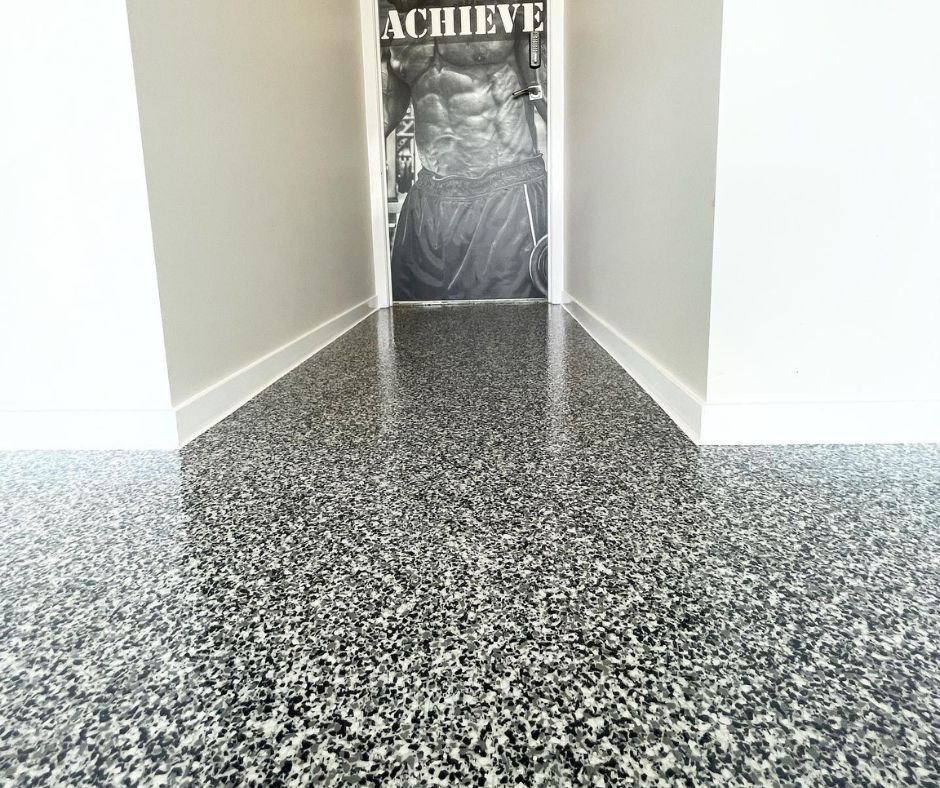
What to Do If You’ve Decided Epoxy Flooring is Right for You
So, you’ve weighed the epoxy floor pros and cons and think epoxy flooring is a good fit, here’s what to do next:
1. Book a Site Inspection or Quote
Reach out to a local specialist like Coulson’s Concrete Finishes for a no-obligation site assessment. They will:
- Inspect your slab for cracks, moisture or levelling issues
- Recommend the right type of epoxy for your space
- Provide a detailed quote and timeframe
2. Choose Your Epoxy Style
Decide on:
- Finish: gloss, matte, flake, metallic
- Colour scheme to match your home or workspace
- Additives: anti-slip, UV-stable, chemical resistance
3. Schedule the Installation
Plan for a few days when the area won’t be in need. Prepare the space, move out furniture, vehicles or equipment. We’ll advise when you can walk, park and fully load the floor.
4. Aftercare Planning
Ask for maintenance tips and warranty details. Learn how to clean and care for the floor to maximise its life. Set reminders for potential resealing or check-ups in future years.
Need Help?
If you want a straight answer on the pros and cons of epoxy floor for your space, book an on-site assessment with Coulson’s Concrete Finishes. We’ll inspect your slab, talk through finish options and give you a clear, itemised quote.
Aside from epoxy flooring services, we also offer surface grinding/preparation, honed concrete and polished concrete to suit different looks, budgets and performance needs of your property in Gold Coast.
Reach out to our team for expert guidance!
Summary & Key Takeaways:
- Epoxy’s biggest wins: durability, easy cleaning, custom looks, chemical resistance, brighter spaces.
- Biggest watch-outs: proper prep, UV on standard epoxies, curing time, repair visibility and upfront cost.
- Decision factors: slab condition, traffic, sun exposure, safety needs, aesthetics and budget.
- On the Gold Coast, climate matters. Choose UV-stable options outdoors and plan installs around humidity and cure windows.
Frequently Asked Questions
How long does epoxy flooring take to cure fully?
Light foot traffic is often possible within 24–48 hours. Vehicle traffic typically after 3–7 days depending on finish type, temperature and humidity. A full chemical cure can take up to a week.
Can epoxy be applied over existing concrete?
Yes, provided the surface is sound, clean and properly prepared.
Is epoxy flooring slip-resistant?
It can be. We add anti-slip aggregates to achieve the profile you need, especially in wet areas, ramps and entries.
What is the expected lifespan of epoxy flooring?
With correct prep and care, many residential and commercial installs deliver years of service. High-wear zones may need periodic re-topcoats.
How much does epoxy flooring cost per square metre?
Pricing varies by prep needs, size, system (solid colour, flake, metallic) and additives. After a site assessment, we provide a transparent, itemised quote.
Can I do the installation myself?
DIY kits exist, however, professional installations always deliver superior prep, adhesion, finish, longevity and avoid costly re-do’s from moisture or cure issues.
How do you repair damage or chips in epoxy flooring?
Small chips can be patched, but big damages, especially on solid colours, are tricky. In visible areas, a fresh topcoat across the whole section often looks best.
What maintenance is required?
A nice sweep and mop with a pH-neutral cleaner is usually all that’s needed to keep the surface looking great. Use floor mats or protective padding in areas where heavy impacts or machinery are present to prevent wear. Avoid using harsh solvents, acidic cleaners or abrasive pads, as these can damage the finish over time. Regularly inspect for any signs of damage or wear and address them early to prolong the floor’s lifespan.
Is epoxy good for outdoor areas or balconies?
Fully sun-exposed areas are better with UV-stable coatings or alternative systems. For covered alfresco spaces, we use non-slip, UV-resistant topcoats and advise on drainage.
What are the pros and cons of epoxy floor over existing tiles?
You get a seamless, modern finish if tile surfaces are sound and properly prepped, but movement joints and patch visibility require expert handling.
